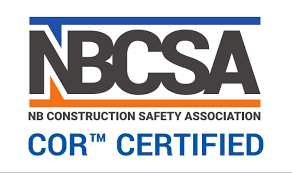REMEDIAL TREATMENT
Remedial Treatment and Pole Life Extension

Impel (Boron) Rods II – The Impel® Boron Rods are highly concentrated, water diffusible borate glass rods. The placement of the rods into the heartwood of utility wood poles offers superior internal protection against fungal decay and insect attack. With as little as 25% moisture content in the wood, a long term supply of wood preservative is drawn into the wood fibers, preventing and eradicating fungus, bacterial and insect attacks. The boron rods diffuse into the wood (both heartwood and sapwood) over a few months and transform into the active ingredient – boric acid. Studies have shown re-treatment is typically required every five to eight years. However, historical field experience has shown that utilities will often reinspect and re-treat, if necessary, at intervals of eight to ten years with no problems. Boric acid and its sodium borate salts are pesticidesthat we can find in nature. Research has shown that boric acid, while highly toxic to insects and fungi, is practically non-toxic to human, mammals and birds, slightly toxic to practically non-toxic to freshwater fish, and practically non-toxic to frogs and toads and aquatic life.
It is possible to extend the life of a pole affected due to decay by a remedial treatment, which will be significantly less expensive than replacing the pole.
 Poles requiring remedial treatment will be identified by inspection/testing. Once the extent and the location of decay pockets are determined, then the type of remedial treatment can be identified.
Poles requiring remedial treatment will be identified by inspection/testing. Once the extent and the location of decay pockets are determined, then the type of remedial treatment can be identified.
Boron and its Application
Boron, which is the seventh most common element in the Earth's crust and is environmentally responsible, could be easily administered in the form of solid rods* inserted into the poles at ground line or any other appropriate location. It could also be applied in the form of plastic "wrap arounds".
* IMPEL® (BORON) RODS II contain 98% Anhydrous Disodium Octaborate equal to approximate 1.45g of Boric Acid per gram of rod
Benefits of Line Management & Remedial Treatment

- Extends the life of poles with initial stages of ground-line decay
- Allows for competent long range planning in line upgrade/replacement projects.
- Saves money by extending life of poles that otherwise would be replaced unnecessarily.
- Effective line maintenance can reduce power outages due to "surprise" line failures.


